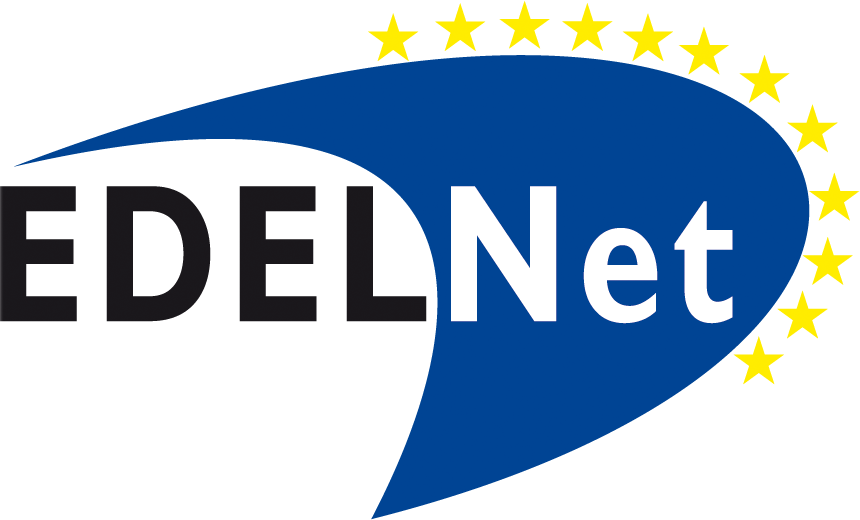
EDELNet (European Distance Education in Law Network) is a Strategic Partnership between 5 European distance learning and campus universities [the FernUniversität in Hagen (FUH), the Universidad Nacional de Educación a Distancia (UNED), the Open University of the Netherlands (OUNL), the Open University of the United Kingdom (OUUK) and the University of Wroclaw (UWr)] firmly devoted to further the principle of equal opportunity through equal access to higher education by using the tools of modern blended learning (online and face-to-face). In particular, EDELNet aims to improve cross-European blended active learning and student oriented teaching in order to facilitate personal learning paths with an emphasis on interdisciplinarity and intercultural communication skills as a basis for a better understanding of each other’s legal cultures and practices across Europe and beyond.
EDELNet was created by FUH, OUNL and UNED in 2008 as an informal inter-institutional network to organize a joint summer school programme in comparative law. In 2014, after six years of successful cooperation, the three founding members formally established the EDELNet Strategic Partnership to promote cultural exchange and best practices in the internationalisation of higher education education in law, including all levels of the Bologna structure (LLB, LLM, PhD). Since then, the EDELNet Strategic Partnership has become an ambitious scientific and pedagogic endeavour that is open to new institutional partners.
In 2015, the Partnership was awarded with European Union funding from the ERASMUS+ KA203 Strategic Partnerships programme (2015-1-DE01-KA203-002169) for the period 2015-2018. The goal of this collaboration was to addressed the European need for widening the access to higher education through international academic cooperation, as identified in the 2011 EU Modernisation Agenda (COM (2011) 567 final). For this purpose, EDELNet developed its current concept for the modernization of teaching methods in law with a combination of student-centred blended learning tools and activities. This combination draws strongly on intercultural communication training and interdisciplinary exchange for the production, learning and application of relevant inter-subjective knowledge in addition to the traditional contents of legal education.
Since 2015, this concept has been implemented and continuously improved through an international and cross-cultural cooperation that aims to broaden access to and participation in international and cross-European legal education, especially for disadvantaged groups such as students with disabilities, economic, social or geographical obstacles, health problems or cultural differences.
In the long term, the concept aims to bring forward the convergence of different European teaching cultures, traditions and didactic formats and improve teaching practice in the entire European legal education community. Through affordable, relevant, high quality and internationalized higher distant learning education in the field of law, we hope to contribute to a more sustainable and inclusive Europe.
EDELNet+ extended partnership
In 2020, welcoming two new partners to the network, the EDELNet Strategic Partnership received funding from the DAAD-IVAC programme (International Virtual Academic Collaborations – Project-ID: 57563814) to develop a new additional PhD Training Programme in Methods and Skills of Legal Research (see PhD activities).
In addition to the formal members of the EDELNet Strategic Partnership (FUH, UNED, OUNL, OUUK, UWr), the network organizing this PhD programme includes the University of Bologna (Italy) and the University of Miskolc (Hungary).
Strategic Partnership and PhD Programme Coordination: Dr. Juan J. Garcia Blesa.
